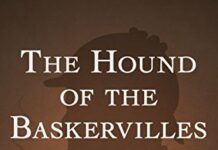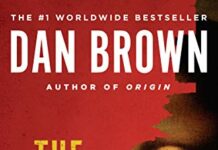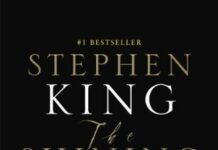
Ebook Info
- Published: 2013
- Number of pages: 242 pages
- Format: Epub
- File Size: 0.25 MB
- Authors: John D. MacDonald
Description
From a beloved master of crime fiction, The Deep Blue Good-by is one of many classic novels featuring Travis McGee, the hard-boiled detective who lives on a houseboat.
Travis McGee is a self-described beach bum who won his houseboat in a card game. He’s also a knight-errant who’s wary of credit cards, retirement benefits, political parties, mortgages, and television. He only works when his cash runs out, and his rule is simple: He’ll help you find whatever was taken from you, as long as he can keep half.
“John D. MacDonald was the great entertainer of our age, and a mesmerizing storyteller.”—Stephen King
McGee isn’t particularly strapped for cash, but how can anyone say no to Cathy, a sweet backwoods girl who’s been tortured repeatedly by her manipulative ex-boyfriend Junior Allen? What Travis isn’t anticipating is just how many women Junior has torn apart and left in his wake. Enter Junior’s latest victim, Lois Atkinson.
Frail and broken, Lois can barely get out of bed when Travis finds her, let alone keep herself alive. But Travis turns into Mother McGee, giving Lois new life as he looks for the ruthless man who steals women’s spirits and livelihoods. But he can’t guess how violent his quest is soon to become. He’ll learn the hard way that there must be casualties in this game of cat and mouse.
User’s Reviews
From the Inside Flap TRAVIS McGEEHe’s a self-described beach bum who won his houseboat in a card game. He’s also a knight errant who’s wary of credit cards, retirement benefits, political parties, mortgages, and television. He only works when his cash runs out and his rule is simple: he’ll help you find whatever was taken from you, as long as he can keep half….With an introduction by CARL HIAASENJOHN D. MACDONALD”….the great entertainer of our age, and a mesmerizing storyteller.” –STEPHEN KING”….a master storyteller, a masterful suspense writer.”–MARY HIGGINS CLARK”….a dominant influence on writers crafting the continuing series character.”–SUE GRAFTON”….my favorite novelist of all time.”–DEAN KOONTZ”…the consummate pro, a master storyteller and witty observer.”–JONATHAN KELLERMAN”…remains one of my idols.”–DONALD WESTLAKETHE TRAVIS McGEE SERIES”…one of the great sagas in American fiction.”–ROBERT B. PARKER”…what a joy that these timeless and treasured novels are available again.”–ED McBAIN –This text refers to an out of print or unavailable edition of this title. Review Praise for John D. MacDonald and the Travis McGee novels “The great entertainer of our age, and a mesmerizing storyteller.”—Stephen King “My favorite novelist of all time . . . All I ever wanted was to touch readers as powerfully as John D. MacDonald touched me. No price could be placed on the enormous pleasure that his books have given me. He captured the mood and the spirit of his times more accurately, more hauntingly, than any ‘literature’ writer—yet managed always to tell a thunderingly good, intensely suspenseful tale.”—Dean Koontz “To diggers a thousand years from now, the works of John D. MacDonald would be a treasure on the order of the tomb of Tutankhamen.”—Kurt Vonnegut “A master storyteller, a masterful suspense writer . . . John D. MacDonald is a shining example for all of us in the field. Talk about the best.”—Mary Higgins Clark “A dominant influence on writers crafting the continuing series character . . . I envy the generation of readers just discovering Travis McGee, and count myself among the many readers savoring his adventures again.”—Sue Grafton “One of the great sagas in American fiction.”—Robert B. Parker “Most readers loved MacDonald’s work because he told a rip-roaring yarn. I loved it because he was the first modern writer to nail Florida dead-center, to capture all its languid sleaze, racy sense of promise, and breath-grabbing beauty.”—Carl Hiaasen “The consummate pro, a master storyteller and witty observer . . . John D. MacDonald created a staggering quantity of wonderful books, each rich with characterization, suspense, and an almost intoxicating sense of place. The Travis McGee novels are among the finest works of fiction ever penned by an American author and they retain a remarkable sense of freshness.”—Jonathan Kellerman “What a joy that these timeless and treasured novels are available again.”—Ed McBain “Travis McGee is the last of the great knights-errant: honorable, sensual, skillful, and tough. I can’t think of anyone who has replaced him. I can’t think of anyone who would dare.”—Donald Westlake “There’s only one thing as good as reading a John D. MacDonald novel: reading it again. A writer way ahead of his time, his Travis McGee books are as entertaining, insightful, and suspenseful today as the moment I first read them. He is the all-time master of the American mystery novel.”—John Saul –This text refers to an alternate kindle_edition edition.
Reviews from Amazon users, collected at the time the book is getting published on UniedVRG. It can be related to shiping or paper quality instead of the book content:
⭐ I fell in love with the Travis McGee series when I was a kid, reading them as they came out. Lost my early copies as I moved around. Later in life I replaced and reread them, kept moving and left them behind again at another place. As an old man a few years ago I decided to buy the series on my Kindle as a Christmas treat for myself. Starting at the beginning with #1(1964), The Deep Blue Goodbye I was underwhelmed and by the time I was part way through #6(1965), Bright Orange for the Shroud I found myself put off by how harshly MacDonald treated his minor characters,and by the way he criticized everything from vegetarians to yoga(disclaimer-I’m partial to both). I stopped reading the series in the middle of the book. Bored one day a few years later I tried the last McGee book MacDonald wrote #21(1985), The Lonely Silver Rain and found MacDonald was just as satisfying but less critical or maybe it was just me who had grown up. Then I tried #18(1979), The Green Ripper and it too showed a less judgmental MacDonald. Deciding that he had changed somewhere along the way I thought working my way backwards would be the safest bet and tried # 16(1975), The Dreadful Lemon Sky,and again I found it to be an excellent read. John D. MacDonald has always been a consummate writer and in his later years before he died in 1986 he seemed to have worked through enough of his demons that he treated the world and his characters with more compassion. May we all do the same.
⭐ This is a VERY short book. I read MacDonald as a teenager and would have liked to revisit the entire series, but at $12 a pop for a book I can finish in <2 hrs, I just can't afford to. (I'm retired, on a budget, and read for 6 hrs+/day). I did read this book, since I'd bought it. I had to keep reminding myself that this was a white man, publishing in 1964 - the condescending, misogynistic attitude to the female characters stinks. Also, it's not really much of a mystery. Travis doesn't have to do much sleuthing to figure things out, so he spends most of his time bedding the damsels in distress who throw themselves at him relentlessly, or punching bad guys. MacDonald would have been 48 in 1964, and married almost 30 years, so I can't help feeling he's living vicariously here. ⭐ Travis McGee is a man who doesn't accept the social norms. Give him a chance, and he’ll launch into a tirade about society’s myriad of little rules—white picket fences, married couples with 2.5 children, obligated consumerism, etc. He doesn't believe in working hard your entire life only to retire when you're too old to enjoy it. Instead, he takes his retirement in installments. He works only when he needs money; the rest of the time, he enjoys living.Well he should, because the kind of work McGee does when he needs money is the kind that can make your living short term.McGee is something of a salvage expert, a finder of lost things. People come to him when they have lost something of value and, having no other recourse, hire McGee to retrieve it. And it has to be something of great value, because McGee's fee is fifty percent of whatever he recovers plus expenses.In The Deep Blue Good-By, the first in John D. MacDonald's legendary Travis McGee series, McGee seeks to retrieve a fortune in gems smuggled into the U.S. at the end of WWII by the father of his client, Cathy Kerr, a down-and-out dancer. Cathy's father died in prison without ever telling his family about the fortune. Unfortunately, he did discuss it with a former inmate named Junior Allen.Junior Allen is the kind of man that makes the rest of the male population ashamed of having X and Y chromosomes. Sociopathic, ruthless, and deviant, Allen seduced Cathy and lived with her until he could locate the jewels her father hid on the family land. Then he dumped Cathy and began living the good life.It's hard to admit, but I had never read MacDonald before this. I mean, the man is legendary giant among both genre and literary authors. How could I have not read anything he wrote until now?Well, all good things come to those who wait, and this novel is damn good. MacDonald's writing is terse, tense, and yet at times lyrical. McGee is no two-dimensional pulp character. He is a literary hero for the thinking man and woman, capable of waxing angrily or poetically on any number of social ills or expectations. MacDonald's depth of character isn't reserved for McGee alone. His portraits of two vulnerable, lonely women whose lives were ruined by Junior Allen are both lovely and heart wrenching.MacDonald wrote twenty-one Travis McGee novels (and scores of stand-alones), and they have been reissued with introductions written by Lee Child to captivate a younger—and, in my case, an older and neglectful—reading audience. Thank God, the famous salvage consultant has been himself salvaged. ⭐ I read this originally about 30 years ago. I was looking at finding something new to fill in my wait period for my favorite authors and came across this in my search. It was a good story and fun. It was fun to return to this "Ocean cowboy" character. A sorta rough around the edges drifter who has a loveable soft side. The story took some interesting turns and kept me engaged to the end. After all these years I did not remember the story so I enjoyed the development through the conclusion. I would diffinately recommend this to anyone who enjoys a good mystery - the age of the series does not effect the storyline at all. ⭐ I had never read John D. MacDonald. Some lists said this was his best, so I began there. I was disappointed. He writes in the hard-boiled tradition of Raymond Chandler, but without Chandler's touch. There's a great deal of "philosophy" and especially notions about female psychology floating around in the book that are pretty questionable. It turns out that the detective hero Travis McGee is God's gift to women and can help them back from abusive relations to being the sweet and compliant creatures they were destined to be (gag). McGee seems not very bright--the usual underestimating his evil enemy that ends him up unconscious on his boat with his rescued girlfriend dead (of course she died in a futile attempt to save him, because that's what good women do for their men--gag). The final chapters are an unintelligibly detailed description of a bouncing boat in high seas and a fight to the death, mano a mano, between McGee and the bad guy. Maybe if you are a highly experienced seaman, all this might make sense to you, but I doubt it. The stereotyped female characters were very--what shall I say?--stereotyped. The novel was published in 1964, which explains a lot. Not to give our own checkered era a pass, but thanks to many women over many years, a few things are more visible to anyone with eyes to see. ⭐ The main character of this novel gets up on his soapbox regularly and beats the reader with his opinions. The reader quickly gets the feeling that all of the MC's opinions are the author's opinions, however, so there's very little characterization at work here. After hearing the same blunt opinions about 8 times, I gave up and skipped over those bits. The MC/author person also beats the reader with how dangerous and vile and disgusting the villain is, repeatedly. The villain is a bad, bad man, again and again and again. OK, i get it already. Villain bad; good guy kill villain. For all of the bragging about how accomplished the MC is as a man hunter, the MC makes some really stupid tactical mistakes, however. I'm really not sure why a lot of folks rave about this series, but I'm not impressed. ⭐ MacDonald's iconic charcter- Travis McGee is featured in this story. This was my first 'McGee' tale in many years as I read a lot of these when they came out in the 60's.The story line is typical McGee- Damsel in distress, McGee steps in to help, restores a lost fortune and puts down a bad guy, beds the lady a couple of times, and...sails off into the sunset-alone. That's not the reason to read MacDonald.What sets MacDonald apart is the amount of philosophizing and introspection he allows McGee on the other characters. A ridiculous amount actually, but somehow it works. As an example in this story while chasing the bad guy he comes across a bevy of young floozies hanging on to a rich guy doling out free drinks, and trips to the Bahamas on his yacht. McGee then spends several pages of narrative charting the course of their lives, ending up in their late 30's with their looks gone and replaced on the party circuit by tight-bodied girls half their age; wondering where the joy in their lives has gone.Another feature of MacDonald's writing that is refreshing is the brevity of his sentence structure. He used commas much less than writers now, but managed to keep the flow of the narrative and dialogue smooth enough to where you don't notice it. (He would have made three separate sentences out my last one, as an example-I am a comma addict as you can see.) Something like- 'He used commas less than writers now. The narrative still flowed well. Same for the dialogue.' See what I mean? It's a matter of style, just not one you're likely used to.So read these for the throw-back writing style and the character to whom so many writers are crafting their tough-guy protagonists after.It's always good to return to the source of inspiration once in a while.Do try and get these on sale- as I did for $1.99. The full price $11.99 is unconscionable for a fifty year old work with a long dead author. Pure corporate greed. ⭐ I am so grateful. I stumbled upon John MacDonald accidentally. Thank you serendipity. He's delicious, delightful, de-lovely. His prescience and very human philosophy are rough diamonds. I'm like a pirate who has discovered buried treasure. So many novels of his to discover! Even though he wrote "long ago" his insights presage today and are so very relevant.I looked up a joke he mentions in this book. Here it is, related by an insightful author, herself, mary-lou stephens (maryloustephens.com.au):So, there’s this lion walking through the jungle, actually strutting more like. He sees a monkey and he roars, “I’m the King of the Jungle! I’m big and strong and brave. You’re just a silly, banana-eating primate.”The monkey, scared out of his wits, or what little wits he has, nods his head and scuttles off.The lion struts along some more and he sees a warthog. “I’m the King of the Jungle! I’m big and strong and brave. You’re just a pig with big teeth.”The warthog isn’t all that happy with this turn of events but knows better than to take on a lion, so he snorts and trots off.The lion, feeling very pleased with himself, continues to strut through the jungle and spies a mouse. “Ha!” he roars. “I’m the King of the Jungle! I’m big and strong and brave. You’re just a puny, scrawny, pathetic little rodent.”The mouse looks up at the lion through squinty little eyes, wrinkles his little pink nose and says in a very squeaky little voice. “I know, but I’ve been sick.”and then, mary-lou goes on to say:And the reason for telling you that joke. “I’ve been sick!” Still am. I’m feeling very small, squinty and mouse-like. And when you’re sick the world feels like a roaring lion, big, strutting and noisy. It’s all a bit too much. Best to concede to the puny, pathetic mouse-like state and find a dark corner to hide in. Tomorrow I might be a lion but today I’m a scrawny squeaker. And as long as the dog doesn’t consider me a snack, I should survive.You're not alone mary-lou. And thank you John MacDonald for becoming an author and not the sterile corporate executive your father envisioned.(See Lee Childs introduction to this 1st book in the Travis McGee series. Speaking of whom: why are all the really great men out there fictional characters?)Thank you John MacDonald. You've got a fan for life. ⭐ “I do not function too well on emotional motivations. I am wary of them. And I'm wary of a lot of other things such as plastic credit cards, payroll deductions, insurance programs, retirement benefits, savings accounts, Green Stamps, time clocks, newspapers, mortgages, sermons, miracle fabrics, deodorants, check lists, time payments, political parties, lending libraries, television, actresses, Junior Chamber of Commerce, pageants, progress, and manifest destiny.” Travis McGee in The Deep Blue Good-By..This book is a great novel. It is not recognized as such because it is based on the writer’s principle of “How lean can the story of trying to be moral” be? Lean, like scotch. It looks like it is “another sixties scotch, women and guns detective book – especially because it is one in a series – but this is a secret, underground, scripture of loss souls, told with the attention of a Hieronymus Bosch painting, which could have saved many had they but known that hell had been honestly mapped in a cheap drugstore thriller. Do not judge a book by its cover. It has good plots, excellent characters, a perfect catch on spoken American English, and quickly creates its own world for you to live in – briefly. This is a book of American existentialism, written just after the Kennedy assassination. It is the fictional record of a kind of American culture that died during the Sixties. The character and the novels reflect a kind of nostalgia, just as Peter Whimsey books are nostalgic – but McGee’s nostalgia is exactly the same kind of nostalgia that drives To Kill a Mockingbird. Wiki says: “When MacDonald created the character, he was to be called Dallas McGee, after the city, but after the Kennedy assassination he decided that name had too many negative connotations. He was searching for a first name for McGee when a friend suggested that he look at the names of the many Air Force bases in California. MacDonald's attention was caught by Travis Air Force base in Fairfield, and so he named his character Travis.” It is a name that should stand beside Philip Marlowe, or the Inspector in Sleeping Car Murders. Or Seymour Glass. So far as I can detect the title owes nothing to The Long Good-Bye.I must warn you: the novel contains the most horrific, detailed account of how a man can emotionally and sexually abuse a woman, the experience of the abused woman, the early feelings of “pleasing a man” and him desiring her; how she changes to cope, what is destroyed in her, and how another force must overcome his force for there to be any chance of rescue and escape. There are two pages of carefully chosen words by the author that are chilling. I strongly recommend that anyone who has experienced even the shadow of this monster not to read this book. Others, who have heard about man-on-woman emotional abuse but not experienced it, can, by the prose, see the dark dust of human dignity rising from this psychological Bergen, and stare right at the face of the furnace-keepers. ⭐ Tried this after thoroughly enjoying Ross MacDonald's Lew Archer private detective series. In this reader's view, John and Travis can't hold a candle to Ross and Lee. As many note, Travis McGee is a terrible misogynist; dishonorable; untrustworthy. Hard to remember a literary protagonist so judgmental--and often the judgment is awful. What's more, this book is extremely dated. In contrast, the Lee Archer books fully stand the test of time. Honestly, perhaps the fraternity of an "old boy's club" accounts for the outlandish praise from the likes of King, Child, Vonnegut--and Amis, quoted as saying MacDonald was a better writer than Saul Bellow. I think they all must have spent too many crazy party nights together on "The Busted Flush.". RIP
Keywords
Free Download The Deep Blue Good-by: A Travis McGee Novel in Epub format
The Deep Blue Good-by: A Travis McGee Novel Epub Free Download
Download The Deep Blue Good-by: A Travis McGee Novel 2013 Epub Free
The Deep Blue Good-by: A Travis McGee Novel 2013 Epub Free Download
Download The Deep Blue Good-by: A Travis McGee Novel Epub
Free Download Ebook The Deep Blue Good-by: A Travis McGee Novel





